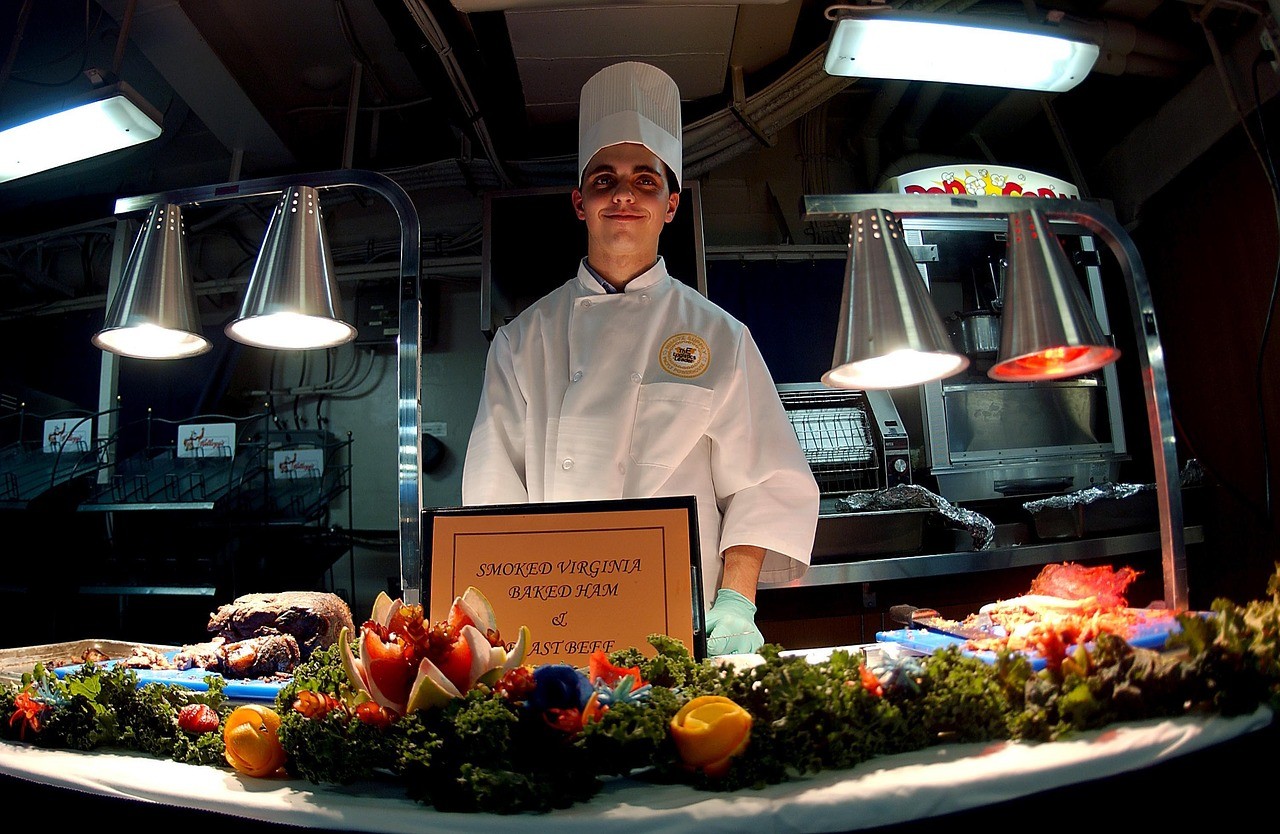In the delectable world of culinary arts career development, the journey from aspiring cook to accomplished chef is as much a science as an art.
With the culinary industry experiencing unprecedented growth, the opportunities to savor success are abundant, but the path to becoming the best in this niche requires precision and dedication.
In this article, we'll dissect what a culinary arts career entails and provide a recipe for achieving excellence in this flavorful profession.
What is Culinary Arts?
Culinary arts refer to the art and science of food preparation, including cooking techniques, food presentation, and the creative aspects of preparing and serving meals. Its significance in the food industry is notable for several reasons:
- Creativity: Culinary arts let chefs experiment with flavors, textures, and ingredients, creating unique dishes.
- Quality: Culinary pros ensure taste, quality, and consistency, which is crucial for customer satisfaction in the food industry.
- Culture: Culinary arts blend traditions with global influences, fostering cross-cultural appreciation.
- Economy: The food industry generates substantial global revenue and job opportunities.
- Tourism: Culinary tourism is growing, boosting the hospitality sector.
- Health: Culinary pros promote healthy eating with balanced menus and dietary flexibility.
- Education: Culinary schools train future chefs, building skilled professionals.
- Experience: Culinary arts elevate dining, adding enjoyment to nourishment.

The Various Branches and Specializations Within Culinary Arts
Within the diverse world of culinary arts, various branches and specializations offer culinary professionals the opportunity to hone their skills and cater to specific culinary niches. Here is a list of some of these specialized areas:
- Pastry and Baking: Focuses on creating pastries, bread, and desserts.
- Sous Chef: Assists the head chef in various kitchen tasks, ensuring smooth kitchen operations.
- Saucier: Specializes in preparing sauces, a crucial element in many dishes.
- Garde Manager: Manages cold food preparation, including salads and cold appetizers.
- Executive Chef: Oversees the kitchen and menu planning and oversees the culinary vision.
- Catering Chef: Specializes in large-scale food preparation for events and gatherings.
- Research Chef: Works in product development, creating new food products for the market.
- Private Chef: Cooks exclusively for individual clients or families.
- Food Stylist: Focuses on making food look appealing for photography and media.
- Culinary Educator: Teaches aspiring chefs in culinary schools or workshops.
- Nutrition Chef: Emphasizes health-conscious cooking and meal planning.
- Experimental Chef: Pushes the boundaries of culinary creativity with innovative techniques and ingredients.
- Butcher: Specializes in meat preparation and cuts.
- Fishmonger: Focuses on seafood preparation and handling.
- Sustainability Chef: Promotes environmentally friendly and sustainable cooking practices.
These specializations cater to different aspects of the culinary world, allowing professionals to carve out unique careers in their chosen niche.
The Skills and Qualities Required to Excel in this Field
Excelling in the culinary arts field demands unique skills and qualities. Here's a list of essential attributes that culinary professionals should cultivate:
- Culinary Skills: Proficiency in various cooking techniques, knife skills, and food preparation methods.
- Creativity: The ability to innovate and create new dishes or twist traditional recipes uniquely.
- Attention to Detail: Precision in measurements and presentation ensures consistency and visual appeal.
- Time Management: Efficiently managing tasks and cooking processes to meet deadlines.
- Stress Management: Handling the fast-paced and high-pressure environment of a professional kitchen.
- Teamwork: Collaborating effectively with kitchen staff for seamless operations.
- Communication: Clear communication with colleagues and sometimes with customers for special orders or dietary restrictions.
These skills and qualities are fundamental for success in the culinary arts field, enabling professionals to thrive in the dynamic world of food preparation and service.
Steps to Excel in a Culinary Arts Career
Excelling in a culinary arts career requires a deliberate path of skill development and dedication. Here are the essential steps to become a standout culinary professional:
- Education and Training: Enroll in a reputable culinary school or apprenticeship program to acquire foundational knowledge and hands-on experience.
- Gaining Practical Experience: Seek internships or entry-level positions in professional kitchens to apply your knowledge and further develop your skills.
- Developing Culinary Skills: Continuously practice and refine your cooking techniques, from knife skills to mastering various cuisines.
- Building a Professional Network: Connect with experienced chefs and industry professionals for mentorship and career opportunities.
- Staying Updated with Industry Trends: Keep abreast of evolving culinary trends, ingredients, and techniques to remain competitive and innovative.
- Showcasing Your Skills: Create a solid culinary portfolio by participating in competitions food events, or by showcasing your work online.
- Pursuing Specializations: Consider specializing in a particular culinary niche, such as pastry, nutrition, or management, to broaden your career options.
These steps provide a structured approach to advancing in a culinary arts career, allowing you to grow and excel in the industry continuously.

Career Opportunities in Culinary Arts
A culinary arts career offers many exciting and diverse opportunities within the food industry. Here are some of the rewarding career paths available to culinary professionals:
- Chef: Takes the helm in the kitchen as a head chef, responsible for menu creation and kitchen management.
- Pastry Chef: Specializes in creating delectable pastries, desserts, and baked goods.
- Caterer: Provides culinary services for events, parties, and special occasions.
- Food Stylist: Focuses on making food look visually appealing for photography and media.
- Restaurant Manager: Oversees restaurant operations, ensuring smooth service and customer satisfaction.
- Food Writer/Critic: Shares culinary insights and reviews through writing or journalism.
- Private Chef: Offers personalized cooking services for individual clients or families.
- Research Chef: Works in product development, creating new food products for the market.
- Sous Chef: Assists the head chef in various kitchen tasks, ensuring efficient operations.
- Nutrition Chef: Emphasizes health-conscious cooking and meal planning.
- Butcher: Specializes in meat preparation and cuts.
- Fishmonger: Focuses on seafood preparation and handling.
- Garde Manager: Manages cold food preparation, including salads and cold appetizers.
- Sustainability Chef: Promotes environmentally friendly and sustainable cooking practices.
- Experimental Chef: Pushes the boundaries of culinary creativity with innovative techniques and ingredients.
Challenges and Rewards
A culinary arts career is filled with a unique set of challenges and rewarding moments. Here, we outline both the obstacles to overcome and the gratifications to savor in this dynamic profession:
Challenges:
- High-Pressure Environment: Working in a fast-paced kitchen can be intense, demanding quick thinking and adaptability.
- Long and Irregular Hours: Culinary professionals often work evenings, weekends, and holidays, affecting work-life balance.
- Physical Demands: The job can be physically strenuous, with long-standing and heavy lifting periods.
- Stress and Pressure: Meeting high culinary standards and customer expectations can lead to significant stress.
- Competition: The culinary industry is competitive, with many talented individuals vying for top positions.
- Handling Criticism: Dealing with criticism from customers and superiors can be challenging.
Rewards:
- Creativity and Expression: Culinary arts allow for artistic expression and the opportunity to create culinary masterpieces.
- Satisfaction in Feeding Others: There's immense joy in providing delicious meals that unite people.
- Continuous Learning: The industry offers endless opportunities for skill enhancement and culinary growth.
- Culinary Community: Building bonds with like-minded professionals and mentors can be advantageous.
- Culinary Recognition: Achieving culinary accolades and recognition for your skills and innovation.
- Personal Fulfillment: A successful culinary career can provide a sense of personal achievement and satisfaction.
Navigating the challenges and savoring the rewards are all part of the journey in the world of culinary arts.
The Bottomline
A culinary career is a flavorful journey that thrives on passion, skill development, and resilience in facing challenges.
With a commitment to excellence, the culinary world offers a delectable journey of fulfillment and endless possibilities for those who aspire to be the best in their niche.



